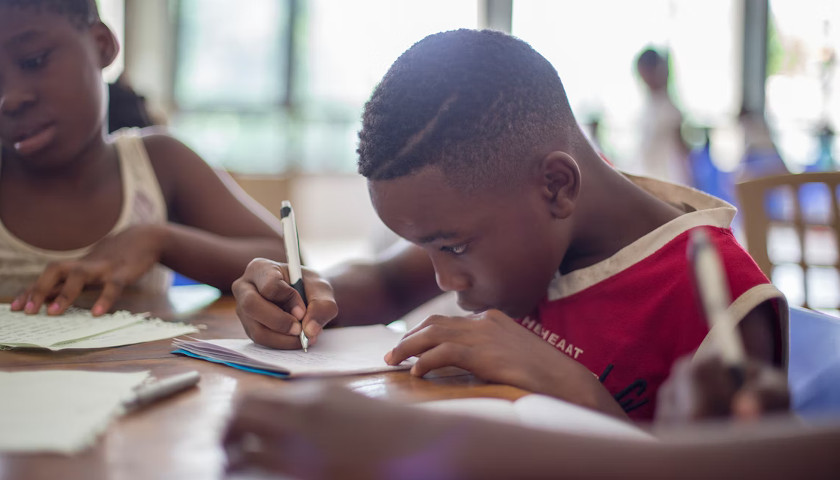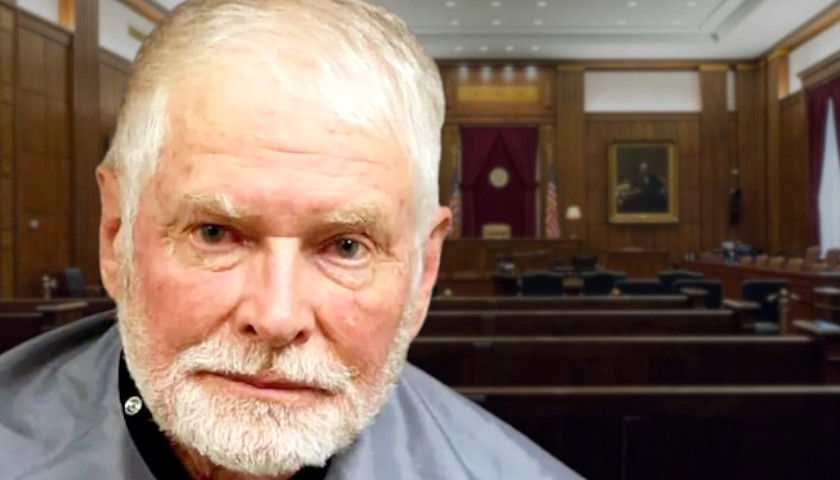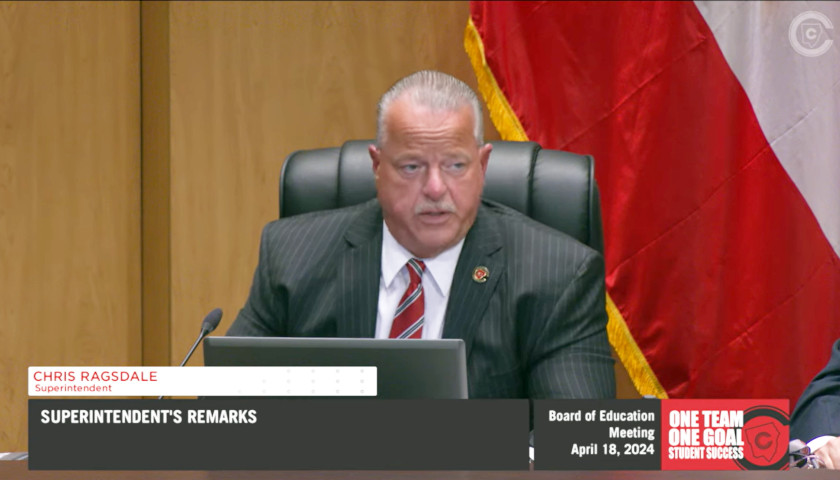RICHMOND, Virginia – Governor Glenn Youngkin’s education administration released a report on the heading of Virginia’s education. The release of the report is a major moment for Youngkin, who came to power riding a wave of parental frustration with education.
“Today is a moment in time for all of us to recognize we must change direction,” Youngkin said at the press conference. “We are not serving all of Virginia’s children and we must. We want to be the best in education. We should be the best in education. And the data that was compiled and shared with you today suggests that we have a lot of work to do to be the best.”
The Thursday release included a virtual briefing session between reporters and Secretary of Education Aimee Guidera and the Superintendent of Public Information Jillian Balow, a formal press conference with Youngkin and administration members, and press releases including a lengthy list of statements from various officials supporting the report.
The report highlights the “Honesty Gap” – the difference between performance assessments in state Standards of Learning (SOL) and performance on the National Assessment of Educational Progress (NAEP). States often have discrepancies in the two scores and mislead the public about students’ proficiency, according to the report.
The report lists four points illustrating the problem:
According to the 2019 NAEP, only 38 percent of Virginia fourth-grade students were proficient or above in reading, while SOL reading data indicate 75 percent are proficient or advanced.62 percent of Black fourth graders demonstrated proficiency on their SOL reading tests in 2019, while only 19 percent were proficient according to NAEP. 64 percent of Hispanic students demonstrated proficiency on state reading tests, compared to 26 percent on NAEP. 3. 2019 NAEP data also indicate that only 48 percent of Virginia fourth-grade students are proficient or above in math, while 83 percent of Virginia fourth-grade students scored proficient or advanced on SOL math assessments. 4. 71 percent of Black fourth graders scored proficient on their SOL math tests in 2019, while only 26 percent were proficient according to NAEP. 77 percent of Hispanic students demonstrated proficiency on state math tests, compared to 36 percent on NAEP.
The report says that’s part of a lack of transparency driving inflated parental perceptions of student performance.
“One thing is clear: The perception of how Virginia thinks that children are doing in school is different than the reality. Over time we have become accustomed to a culture of sporadic sharing of data, lowered expectations for students and declining student achievement. Today’s report signifies a new beginning to our work together,” Balow said in the press conference.
Commitment to Virginians
Youngkin presented a commitment to raise expectations, support schools, and hold them accountable. The commitment features seven guiding principles: high expectations, empowering parents and teachers, zero tolerance for discrimination, innovation through school choice, transparency and accountability, post-secondary readiness, and freedom of speech and inquiry.
“Let me be clear: We use the words our commitment and we do not use those words lightly. They’re underpinned by seven principles that we together will use to guide our path. These seven principles reflect this commitment.”
Equity
The report describes the history of Virginia’s educational progress taking a negative turn in 2017 when the State Board of Education changed accreditation requirements to “to de-emphasize grade-level proficiency in reading and math. Despite the gaps between state and national proficiency standards, the State Board of Education voted to lower the proficiency cut scores – meaning how many correct answers it takes to demonstrate proficiency – on Standards of Learning (SOL) tests in math and reading in 2019 and 2020, respectively.”
Key metrics highlighted by the report show declining performance through 2021. Part of that is explained by learning loss due to the pandemic. But in the briefing before the press conference, Guidera told reporters, “I think there’s a general culture of just lowering of expectations.”
“What happened before today is we took our eye off the ball. The state of Virginia forgot to focus. We started thinking about growth and making sure we were giving credit where progress was being done,” she said.
She said that while it is important to celebrate growth, it can’t become a distraction from meeting high expectations.
“Oftentimes we’ve been, in the past several years, talking a lot about equity, and talking about this need of equity, and I feel personally that that has been a distraction from keeping our eye on the ball of making sure that every single child in the commonwealth is prepared for the rigors of our economy and our democracy,” Guidera said.
During a question-and-answer period after the conference, reporters asked Youngkin how the administration means to address poor student performance that’s especially bad among minorities without a focus on equity.
“I think we just have a very confusing word in the word ‘equity.’ And so let me answer it in a different way, which is we see gaps that are unacceptable, and those gaps persist for all of Virginia’s students in their white or black community or brown community and our associated economically disadvantaged communities. And so what we need to do is recognize that’s a problem and not try to solve a problem that’s not there,” he said.
Youngkin said that the solution lies in state help for underfunded school facilities, raises for teachers, innovative approaches to early learning and literacy, and attracting high-quality educators to needy areas.
“This is not about trying to put a label on an issue. It is about recognizing we had one, and going and fixing it,” he said.
Several former governors participated, with former Democratic Governor L. Doug Wilder the only one present in person.
Wilder told reporters, “The word equity, I suppose you could be concerned with it. Diversity and inclusion are two other words. What do they mean?”
“Those words don’t mean anything. What they may mean to you they don’t mean the same to him [a nearby reporter] or to me. By law – I’m a lawyer – it means fairness,” he said.
He told reporters that he liked what he heard from Youngkin’s presentation.
“I do think, however, it’s broader and wider to an extent,” Wilder said.
He said one problem is that school board positions are seen as a stepping stone to higher office and highlighted a proliferation of executive-level positions in education and other sectors.
“A lot of these things that [Youngkin]’s talking about should and could be addressed at the school board and it’s not just money. You got a problem, you’ve got a problem. You don’t fix it by saying, ‘well, we need another system,’ or ‘we got to have another deputy superintendent,'” he said.
“I think it’s very good, and it’s important to focus on putting money where it fits the role,” Wilder said.
– – –
Eric Burk is a reporter at The Virginia Star and The Star News Network. Email tips to [email protected].








